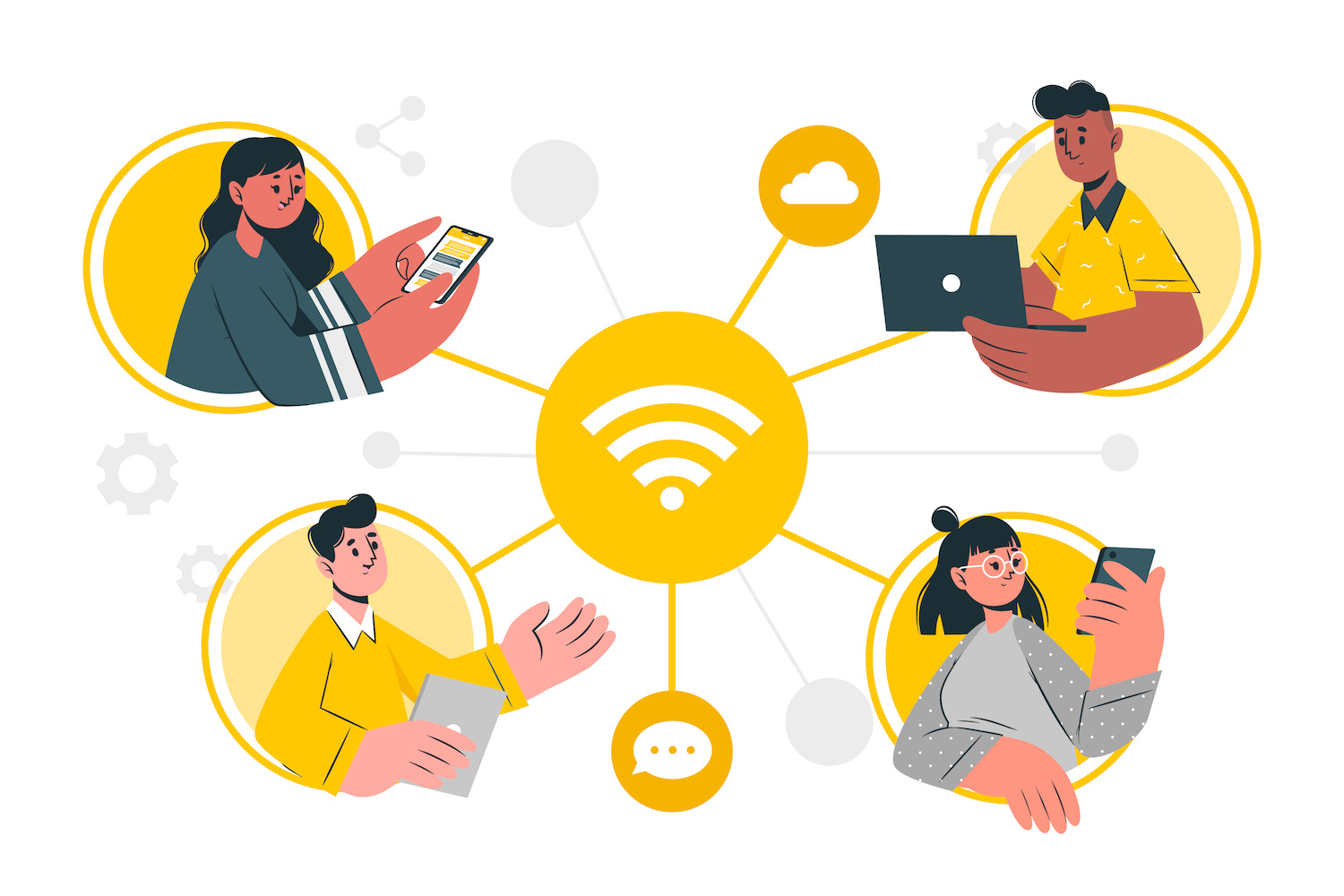Executives, let's transform the way we work together.
Over the past month I've been a part of an engaging debate on quitting in the annual World Economic Forum gathering in Davos. Changes in the workplace are rapid. I'm amazed that the leaders have asked plenty of the right questions. What are between the advantages and the disadvantages? Also, consider the risk and potential associated by AI along with the need to create an environment that's durable and more relaxing.
But, there is an issue that merits being considered further considering that the world is changing technologically as well as post-pandemic behavior and expectations are changing...don't the leaders of our country also need to adapt?
There's a whole new generation of digital natives have been able to enter the workforce. They've grown up making videos and sharing them instead of calling or texting. Nowadays, we are capable of thinking of TikTok and YouTube as their primary sources for information. When it comes to their personal lives, they're very active and involved.
When it comes to their careers however this is not the case. There's significant reductions in employee engagement and satisfaction for workers who work remotely Z and younger generation millennials. There are only four percent of employees who work working remotely or in a hybrid environment have an understanding of what they need to expect from their employers when they're working. Most Gen Z employees are ambivalent or aren't engaged in their work. In our opinion that employee engagement is the primary indicator of the efficiency of the workforce, which affects each business and every dollar earned.
What is the cause of the disconnection? When we work and all through the course of life, we tend to search for connections with something greater than what we really are. Our natural instinct is to become part of bigger issues and create an image that is authentic, real and authentic and real. Since our society is increasingly more digitally diverse and connected and guided by AI and in a haphazard way, it's becoming increasingly difficult to communicate with regular people. Particularly, if we haven't changed our working methods so that we can adapt to the latest generation. Employees will have to deal with the numerous piles of papers and long emails and going to boring meetings. They are provided with information about the upcoming layoffs and company priority messages made up of scripts, and also automated messages that can be created with ChatGPT. Our only insight for managers originates from surveys on participation of cookies cutters or live events which have very slow turn-in, and along with times that it is a case of hilarious chats, or even questions and answers.
The traditional management models don't help us. The time is now to transform the ways we , as leaders manage ourselves and engage and interact with employees. Like how we're focused on improving the skills of our staff members in relation to evolving technology capability of the workforce along with demographics and demographics are essential in enhancing our ability for increasing confidence and connect with all of the people.
I've played around with couple of them over the past few years . This is what I've learned and I've applied to my own life and I believe it will help us to perform better and be more effective in our leadership.
1. You're the person you're.

As soon as the outbreak was announced on the day of the outbreak, I held the town hall that was open to the world in my parents' house located in Flint, Michigan -- tired, wearing my pajamas that were comprised of velvet, as was my son, who was an infant, as was my mom , who was shifting between different background.
It was one of the most efficient communications that ever occurred in time.
Why? because it was not planned, and also created discomfort that was uncomfortable, unpleasant and filthy. It's quite easy to get into "us to us or them" conditions when working in an workplaces, especially during situations where there's pressure or an issue. It's easy to see "leadership" as a non-essential or unimportant tool. Being video-centric with your communications can be a powerful dissuasion. It forces you to peel off the mask, and to shield yourself from writing or editing your messages. One of the best ways to share your thoughts is to express your real self.
There are numerous instances of leadership where the leaders took on risks, but ultimately backfiring...but I'd guess that the majority of the time this resulted from the leadership's many duties. It's crucial to acknowledge your shortcomings in the team you work with. All of us have flaws, which allows us to be humans. Everyone would like to watch their leaders perform their best. This is an excellent chance to inspire us to emulate those leaders who inspire us.
2. Begin by starting by "why . "
As with many managers I've had to make difficult decisions in the past year. As a manager, I've been forced to make high-level decisions as well as laid-offs in addition to cuts and restructuring projects so that they can be more effective. My responsibility is to make difficult and controversial choices in addition to making quick adjustments to the company.
With the increasing amount of situations, individuals want to understand what motivates them to take their choices. The issue is not only about the "what" but there's another "why". That includes the desire to comprehend the bigger picture of competition, the way trade-offs are weighed and balanced, along with the procedure used and the time it took.
The classic book about comms recommends that when you are confronted with an issue that is urgent within your communication that requires your attention to be slightly strained, first consider the "what" before beginning the critical procedure. Based on my experience I've had better outcomes when I have my team members take the decision to place themselves as the primary individuals who must be aware of the problem.
The end of the time, beginning with "why" is a the most important rule to follow for all communications regarding . There are definitely some limitations in a fully transparent communications (legal or related to PR , as and risks to consumers) What I've noticed is that the predominant view of the challenges in transparency comes from. Perceived. People may disagree with your method of making choices, however you can say that if they did not like your choice that it's not the fault on your end. They'll be able to accept and accept your process of decision-making in the beginning when you are aware of the reasons in deciding to back them.
3. It's important to go to events personally, or get together with a group that are more intimate. it more personal.

There's no doubt that I recognize the irony of having the title of CEO of an organization that creates video that say that. One of the best lessons I've gathered during the last few months has been that we've been at an impasse for far longer than we should have, with no sufficient knowledge to move the teams closer and closer time.
In the month of January, just a few days following the announcement of cuts, we hosted a kickoff for our business in NYC. This event was attended by people from 12 different nations. There were employees from Ukraine who flew or train to reach us. We decided to steer clear from traditional confetti often used in celebrations, and instead chose to be casual and wear just a couple of ounces. This was definitely one of the most inspiring and essential decision that I've taken.
This is especially relevant to people who manage teams who fly and communicate with their employees wherever they might be. Our team is an executive-level group that spans the globe and has 8 offices scattered across the globe, from Seattle through Switzerland. The majority of our staff was hired in the past year. They are therefore relatively new and are still working as a unit. To accelerate the process of making an effective group, the team started hosting offsites inside the city that was close to where they could stay at the home of the leader. Our CFO's mother was gracious enough to let us stay at her home in Vermont. The Sales head back at that moment was dressed in an apron. He made us frittatas for breakfast. Working sessions were conducted in the Table of the Chef of Product.

The tragedy offered us the chance to look at our life in relation to the family and social life . If we can make use of it and incorporate this event into our everyday life, we will be able to build more resilient and more cohesive groups.
4. It's possible to shift the "lean back" into "lean forward" information.
Skills for communication are essential and may develop into the capability of designing "lean forward" experience rather than "lean back" broadcasts. Humans have attention spans that have decreased (now less than 8 seconds which is less than the goldfish's!). Communications are made by way through a variety of emails. You can do it via email which you've read, or via the highly-designed town hall in which you're allowed to participate of and participate in.
The negative impact this has on the engagement of viewers can be seen in our research that shows that the length of duration that viewers stop watching videos has diminished in the last few years. If we do not make any adjustments to the way we conduct our companies, the possibility of losing viewers, it will affect the way we can ensure the teams we have are functioning together and effectively.
It is essential to change our perception of reality and be open to different things. The generation of young people who's working is getting a advantage over us since they are able to create and keep records that are real and packed with information. They're ahead due to their freedom from limitations that used to be imposed due to outdated ways of talk at work.
Workers don't quit their job They let their supervisors depart. Actually, the ones who are the most productive bosses. According to the findings of an study that involved over 113,000 of the top managers. A key aspect that helps leaders be successful is their reliability to their staff. We, as leaders, need to be trained to act in more genuine, entertaining and productive ways. I'm betting that those who accept the changing trends in the world will have more success in managing the next generation of their employees. They'll have better-educated and actively involved teams across the world, collaborate with their employees to achieve greater results, and build strong relationships that result in remarkable outcomes. They'll stop communicating and make relationships that are more effective.
This post was first published on this website.
The original post was published on on this website.
This article first appeared on here
The post was published on here
This post was first seen on here
